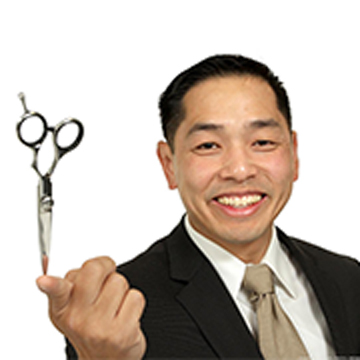The Importance of Continuing Education for Cosmetologists
The profession of cosmetologist covers a number of areas, including expertise in hairdressing for men and women, qualifying to undertake facials, advising on skin care and makeup, and undertaking manicuring. In order to qualify and practice as a cosmetologist, a candidate must undergo a course of training at a school of cosmetology or a state-licensed barber, for at least nine months. There are cosmetology courses available in high schools, and associate degrees available in colleges of higher education.
The Ever-Changing World of Cosmetology
However, even highly qualified cosmetologists continue to attend training courses and seminars after years of practice in their areas of expertise. This is because the technologies and techniques used in the industry are forever changing and expanding. For example, the technique of adding hair extensions continues to evolve, with new kinds of bond for the client. The qualified cosmetologist needs to know of these developments, and be able to tell his or her client if the desired bond is suitable for combining with salon-colored hair.
There are compatibility issues also in areas like skin care, for example, advising a client who wants to combine facial skin peeling and hair-removal. If technique is important, creativity is vital. The competent cosmetologist continues to take courses that will push his or her creativity to the edge. Fashion in clothing changes from season to season, and the ability of the cosmetologist to advise his or her clients on co-coordinating hair and makeup color with clothing, is a significant one.
Educating Cosmetologists in Commerce
Even the most highly trained cosmetologist cannot survive in a competitive industry without training in advertising and marketing. This is especially true for the cosmetologist who wishes to “go it alone” by setting up his or her own business. However, all cosmetologists will have to “sell” themselves eventually to practice for an employer in a salon environment.
The Cosmetology Zeitgeist
Most profound of all, continual training in the beauty industry enables the cosmetologist to stay in touch with the “zeitgeist”, to tune in to the esthetic of the time. While studying, trainees also get the opportunity to form networks with career-enhancing colleagues. Incidentally, many schools enroll graduates automatically for industry awards and competitions.
To sum up, undertaking courses in cosmetology enables the graduate
- To practice cosmetology across states or even in other countries
- To keep ahead with changing industry technique and technology
- To nurture the innate creativity in every cosmetologist
- To channel confidence to clients in matters of fashion and makeup
- To network with colleagues and enable future working relationships
In short, continuing education for cosmetologists is extremely important because the beauty industry is ever changing.




